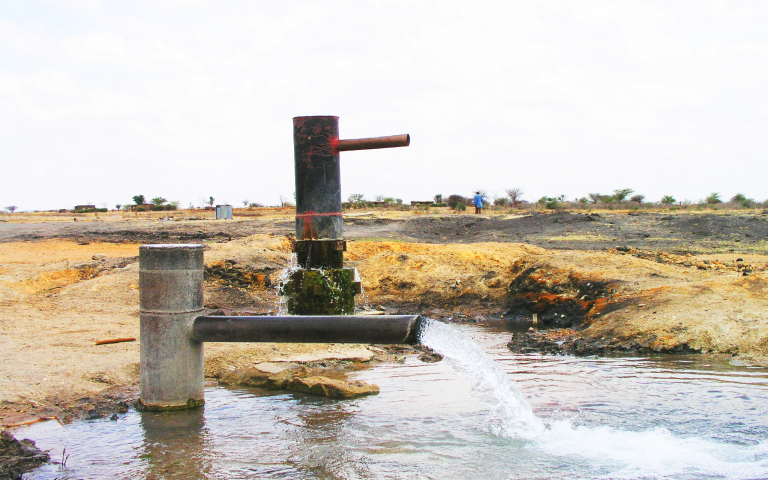Scientists call for urgent action to protect global groundwater
9 December 2019
Governments and international committees must recognise the crucial contribution of groundwater to climate resilience and sustainable development, urges a group of international scientists and practitioners including from UCL.

The call to action, published as a Correspondence in Nature, cites recent scientific breakthroughs that highlight the regional and international importance of, and threats to, global groundwater supplies – which make up 99% of the Earth’s liquid freshwater.
More than 700 scientists, practitioners and experts from more than 80 countries around the world have signed the statement.
Co-author of the Nature Correspondence, Professor Richard G. Taylor (UCL Geography), reports: “In low-income countries across the tropics, groundwater is a vital source of freshwater enabling access to safe drinking water as well as improving food security and livelihoods through irrigated agriculture.”
The scientists highlight that groundwater is the drinking water source for more than two billion people and provides more than 40% of the water for irrigated agriculture worldwide. However, around 1.7 billion people live above aquifers - geological formations providing groundwater - that are stressed by overuse.
The report comes amid the United Nations (UN) Climate Change Conference in Madrid (COP 25), the beginning of the Decade of Action on the UN Agenda 2030, and the annual meeting of the American Geophysical Union, the world’s largest gathering of Earth scientists.
The scientists say we are not doing enough to protect and manage global groundwater resources, which will have long-term effects on the planet’s drinking water, food production, and adaptation to a rapidly changing climate.
“We are seeing a picture that is incredibly troublesome. All over the world, especially in the mid-latitudes, water is going to become increasingly scarce. Notably, groundwater systems are being overtaxed and pumped at unsustainable rates. This overuse poses a major threat to water availability, water security and food security,” said Dr Jay Famiglietti, Director of the Global Institute for Water Security and Canada 150 Research Chair in Hydrology and Remote Sensing at the University of Saskatchewan.
Famiglietti, who led a 15-year satellite-based global groundwater study with NASA’s Jet Propulsion Laboratory, stressed the urgency of the situation. “We are past that time when you don’t have to worry about it. We are at a time when we do need to do more than thinking about it. It is absolutely essential that we act now,” he said.
The call to action statement outlines three key action items to address the situation:
- Put the spotlight on global groundwater sustainability by completing a UN World Water Development Report on the state, trends, and prospects of global groundwater sustainability for the 2022 UN World Water Day. This should be dedicated to groundwater and recognizing the global importance of groundwater to the UN 2030 Agenda for Sustainable Development;
- Manage and govern groundwater sustainably from local to global scales by applying sustainability guiding principles by 2030.
- Invest in groundwater governance and management by implementing groundwater sustainability plans for stressed aquifers by 2030.
Image
- Groundwater recharge. Credit: UCL.
Links
- Professor Richard G. Taylor’s academic profile
- UCL Geography
- Global groundwater statement
- Global groundwater video
Media contact
Natasha Downes
tel: +44 20 3108 3844
E: n.downes [at] ucl.ac.uk
 Close
Close

